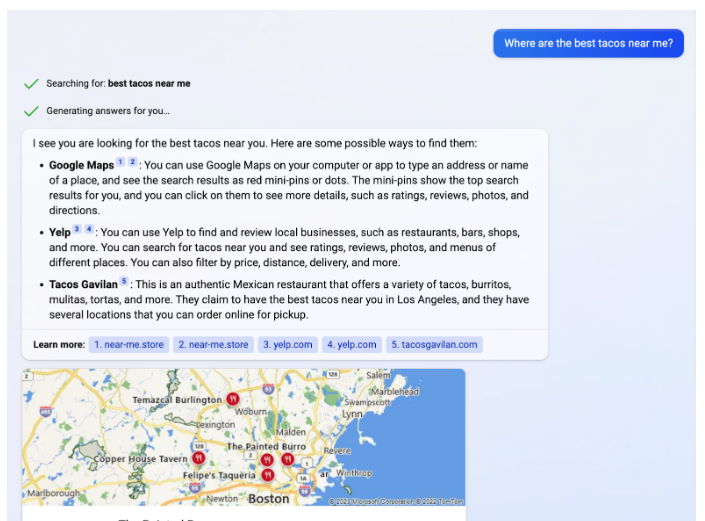ChatGPT, AI content generation, and the future of search
Generative AI capabilities like ChatGPT are the hottest news in technology right now. And understandably so. Whether it’s their ability to create remarkably human-like narratives and artwork, the fact that they’ve attracted more than a hundred million users in a...
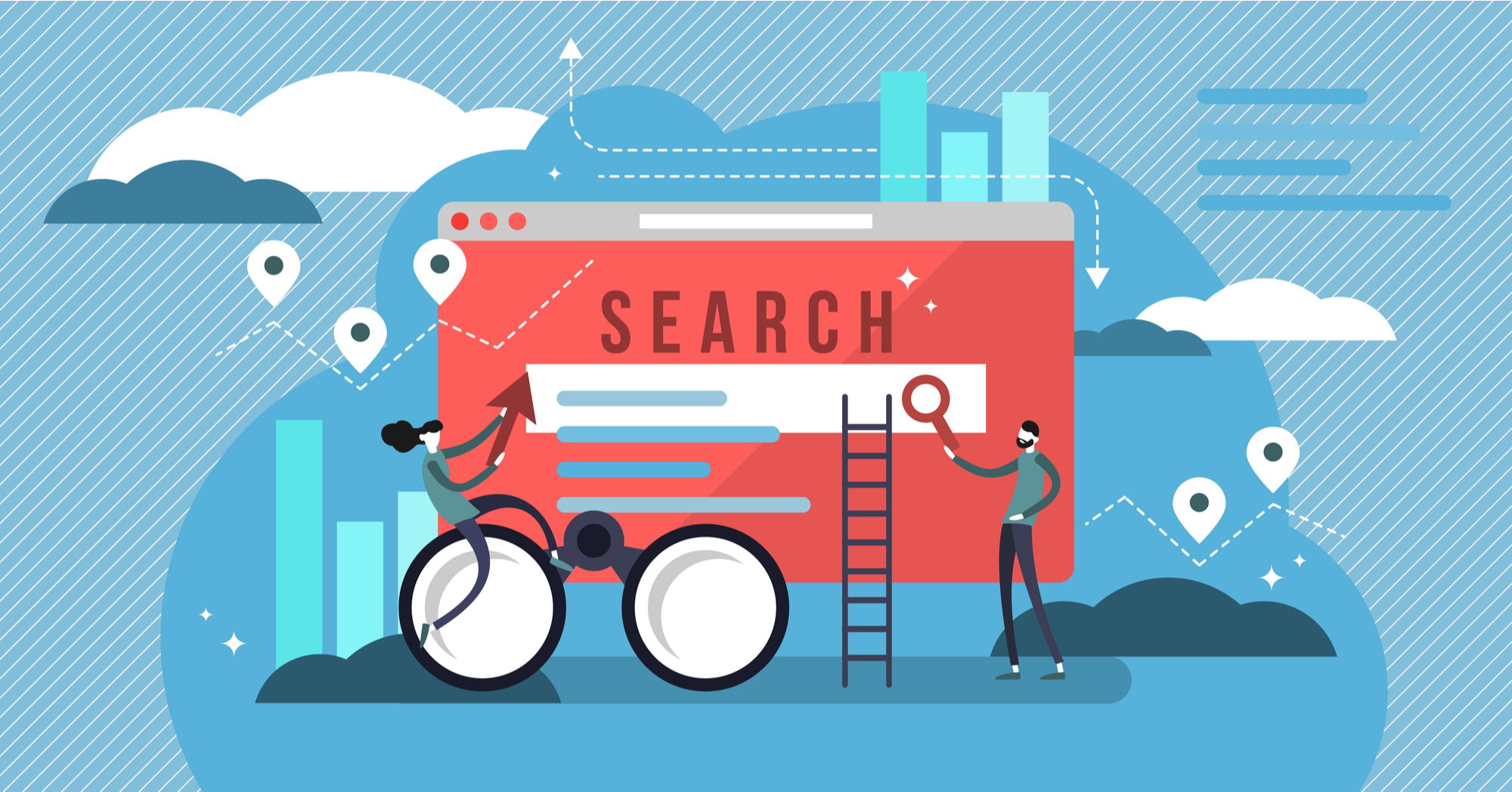
Generative AI capabilities like ChatGPT are the hottest news in technology right now. And understandably so.
Whether it’s their ability to create remarkably human-like narratives and artwork, the fact that they’ve attracted more than a hundred million users in a matter of weeks, or the myriad ways they might conceivably transform society, generative AI’s potential for far-reaching effects is obvious.
AI tools’ surge in popularity is leading creators to ask profound questions:
- Will machines start to outcompete my content?
- Will search engines stop sending traffic to my site?
- How can I use this technology to supercharge my efforts?
We’ll explore some of the implications today and in future articles.
Let’s be clear: we can’t predict the future with fidelity. Neither can anyone else.
Even so, we have a lot of experience, data, and insights we’d like to share on the risks and opportunities of this technology.
We’ve been directly building on and experimenting with the capabilities of generative AI, specifically OpenAI’s GPT-3, since 2020. You see it embedded into our products, fine-tuned to optimize our creators’ content in tools like Topic and Content Ideas.
We also have deeply specialized experience on our team. Not just experts in fields like natural language processing and audience growth but also veterans of massive platform transitions and technology cycles.
And perhaps most powerful of all, we have a network of more than 4,000 amazing creators who independently produce some of the most compelling content on the web and who are learning about and sharing perspectives on these expanding capabilities every day, helping us collaboratively shape a bright future.
So let’s paint a picture of some possibilities.
Once upon an AI…
Convincingly mimicking human creativity, particularly simulating human conversations in text, has been a goal of computer scientists since the field’s infancy in the 1950s. Practical machine learning and generative AI tools have been around, in various forms, for decades, though their capabilities were pretty primitive until recently. Advances in the last few years have been dramatic, thanks to a combination of gigantic data sets, including most web content, better algorithms, and cheaper processing power.
The game-changer now is mass-market access to “large language models” like ChatGPT. Many of these new AI tools are based on a technology known as “transformers.”
Fundamentally, you can think of tools like ChatGPT as providing an extremely sophisticated autocomplete capability.
You provide an input “prompt.” Based on its experience digesting hundreds of billions, even trillions, of words of text, the model predicts what will plausibly come next. And not just for a few words but for whole sentences and paragraphs.
What’s stunning is that something conceptually so simple, powered by vast inputs and massive computational resources, can produce such convincing results!
But transformers have serious limits.
A key drawback: “hallucination”
You’ve doubtless had the experience of autocomplete suggesting something utterly unrelated to what you intended – or related, but simply wrong. Transformers like ChatGPT make bad predictions too, and at a larger scale.
They engage in what is technically known as “hallucination.”
That’s an apt term because you can get superficially plausible results that have no basis in reality. Transformers will hallucinate, using language that can sound entirely factual, even to the point of making up plausible but completely fake citations to scientific research papers.
The bottom line is that transformers “understand” statistical patterns of words, sentences, and paragraphs… but don’t know facts or perform logic, except to the extent these facts or logic occur in their training data.
They have no real-world experience.
No common sense.
They have no taste buds.
You can find plenty of entertaining examples of AI-generated recipes gone wrong, including a memorably unpalatable Thanksgiving dinner cooked by reporters at The New York Times.
Of course, these shortcomings aren’t a reason to be dismissive. Technology continues to advance. Tools don’t have to be perfect to have significant impacts. And many intelligent and well-resourced people are working to close existing gaps.
Content creation and optimization
So what does this mean for content creation?
It’s helpful for content creators to think about these tools in two ways:
- How you can use them yourself
- How other creators might use them to compete with you
AI for brainstorming
There’s no doubt AI tools can be transformative for finding new ideas. That’s why we’ve already brought some key brainstorming capabilities to our creators through the content optimization features in our creator dashboard and the Topic WordPress plugin.
Behind the scenes, Topic uses AI tools like GPT-3 that we have specifically tuned to improve components of our creators’ content.
Topic can help optimize an existing post or create a new one, outline an article, and suggest titles and descriptions that can save you time and make your content pop.
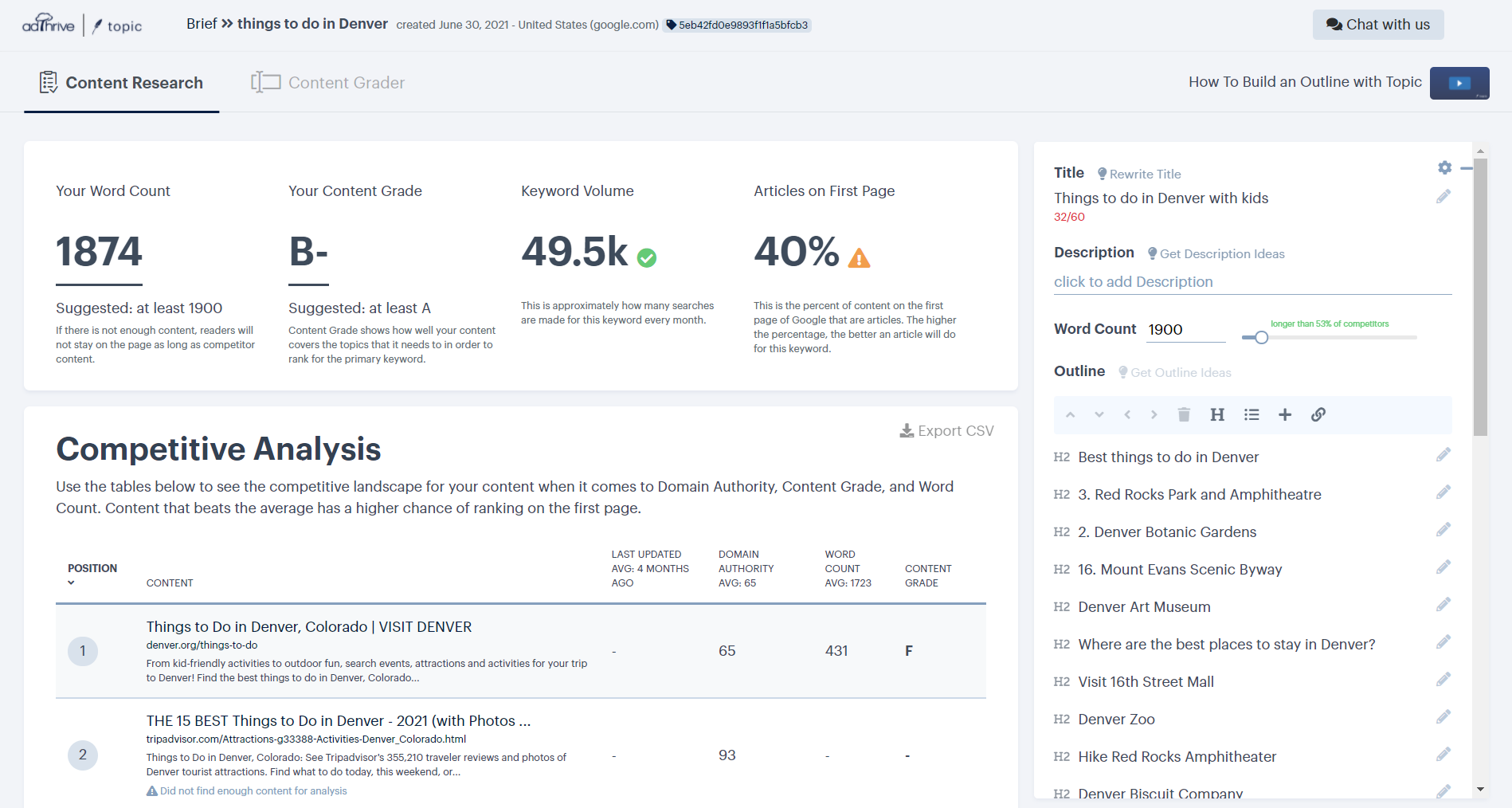
And there’s more to come. Our teams are actively advancing the capabilities we offer and have more AI-assisted tools in development.
Wholesale machine-generated content – yay or nay?
What if you’re inclined to take the leap and use AI tools to automate content production? Wouldn’t it be a huge help to have a first draft that helps you break through the writer’s block of starting with a blank screen?
It’s worth experimenting – but think carefully about what comes next.
Using machine-generated content wholesale probably isn’t the right approach. We’ve deliberately chosen not to encourage this approach in our products.
Creators know that trust and authenticity are critical for a sustainable business. Maybe you’ve experienced firsthand how hard it is even for human staff or freelancers to get things right, both in being genuine and in expressing your distinctive voice. Using AI can amplify these problems if you’re not careful.
Major web publishers have been publicly embarrassed by spewing out machine-generated content that later turned out to be seriously incorrect or even plagiarized.
So always make sure your content remains authentic, accurate, and original. Make sure a human has the final word.
That’s critical not just to maintain and build trust with your readers but also to protect your search rankings.
Google recently clarified that AI-generated content is not, as such, in violation of its guidelines. After all, writers have long used research tools and AI assistants like Grammarly to polish their prose. Instead, Google reiterated that the quality of the content matters most, particularly how it fares on the EEAT (Experience, Expertise, Authoritativeness, and Trustworthiness) metrics. But low-value, spammy, or misleading content can be penalized.
Bottom line: Use AI as an assistant that helps you lean into your humanity, not substitute for it.
Outpacing the competition
Regardless of how you apply AI tools to your content-creation process, you can be sure other creators will also be racing to use them. Should you expect a tidal wave of copycat, machine-generated content?
Maybe, but not necessarily.
When you’ve already established expertise, search ranking, and domain reputation for a given topic, you should be well-positioned to compete.
Our content optimization tools help you maintain a competitive edge
For site-specific insights, our content optimization tools recommend posts to update on your site for better search performance.
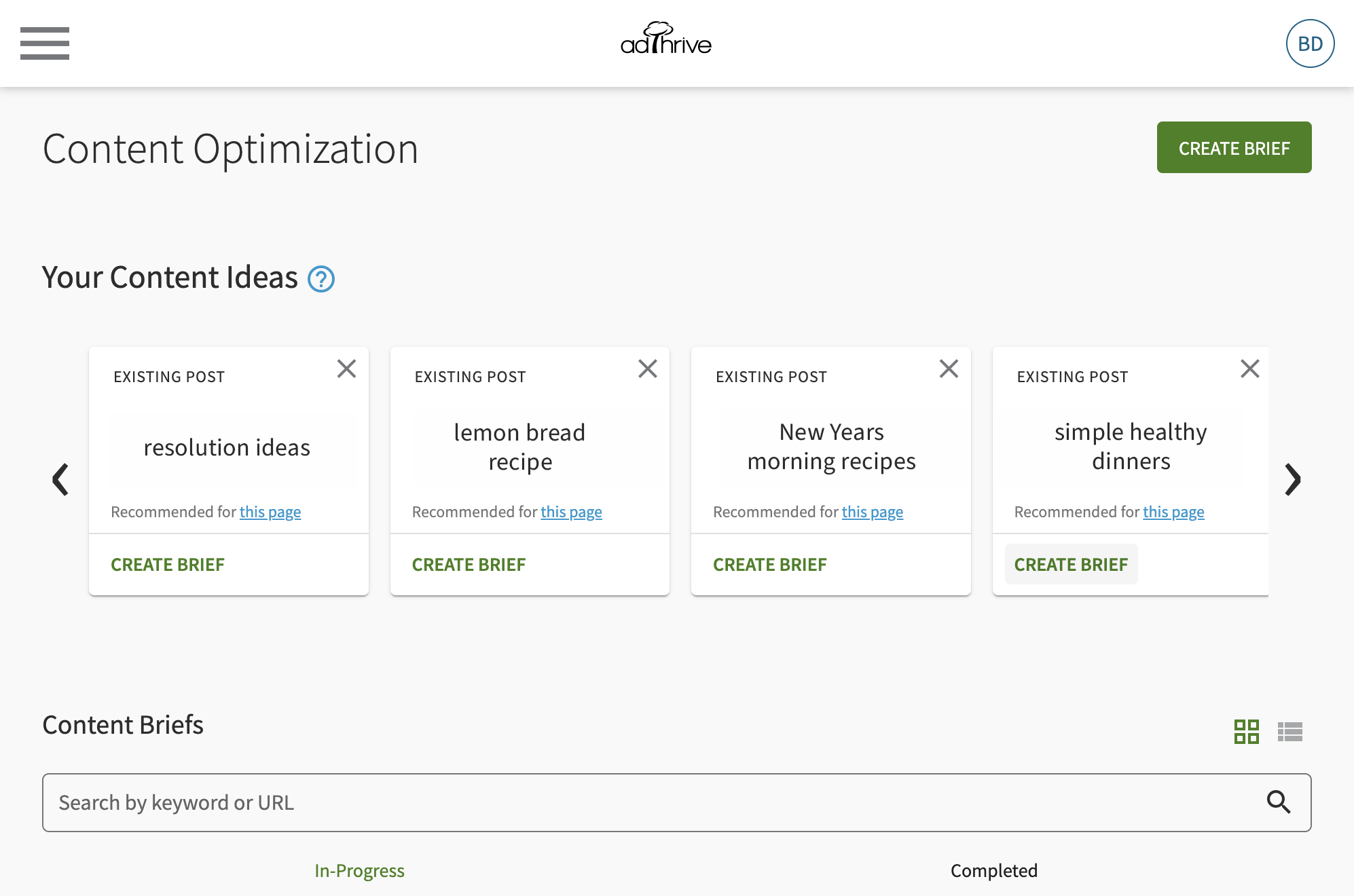
Use Topic to stay abreast of search rankings and the competitive landscape for these keywords and posts. We provide a wealth of resources exclusive to our creators on how to do just that.
AI models and copyrighted content
It’s worth noting here that AI models develop their fluency by analyzing vast amounts of text, including copyrighted web pages and, very likely, your own content.
Is it fair for AI companies and other creators to use your content to bootstrap their success?
We believe content creators have the right to determine how their content is used, including whether or not it is used to train AI systems.
Various lawsuits have already been filed challenging this use of creators’ content, and we’re actively exploring how we can help creators protect their interests with this.
Search and content discovery
Every creator knows that producing compelling content isn’t enough. To get traffic, you also have to rank for search keywords. For the typical creator we work with, more than half of sessions begin with a referral from a search engine.
Now that Microsoft has integrated ChatGPT into a preview version of Bing and Google has announced its Bard conversational search interface, it’s only natural to wonder how this will affect clickthroughs.
Of course, this is far from a new concern. For years, Google has used search features to provide “zero-click” answers to many queries.
To stay abreast of the possibilities, we’ve been previewing the new Bing search interface. In one view it doesn’t look wildly different, with an AI summary of search results and citations appearing in the right rail:
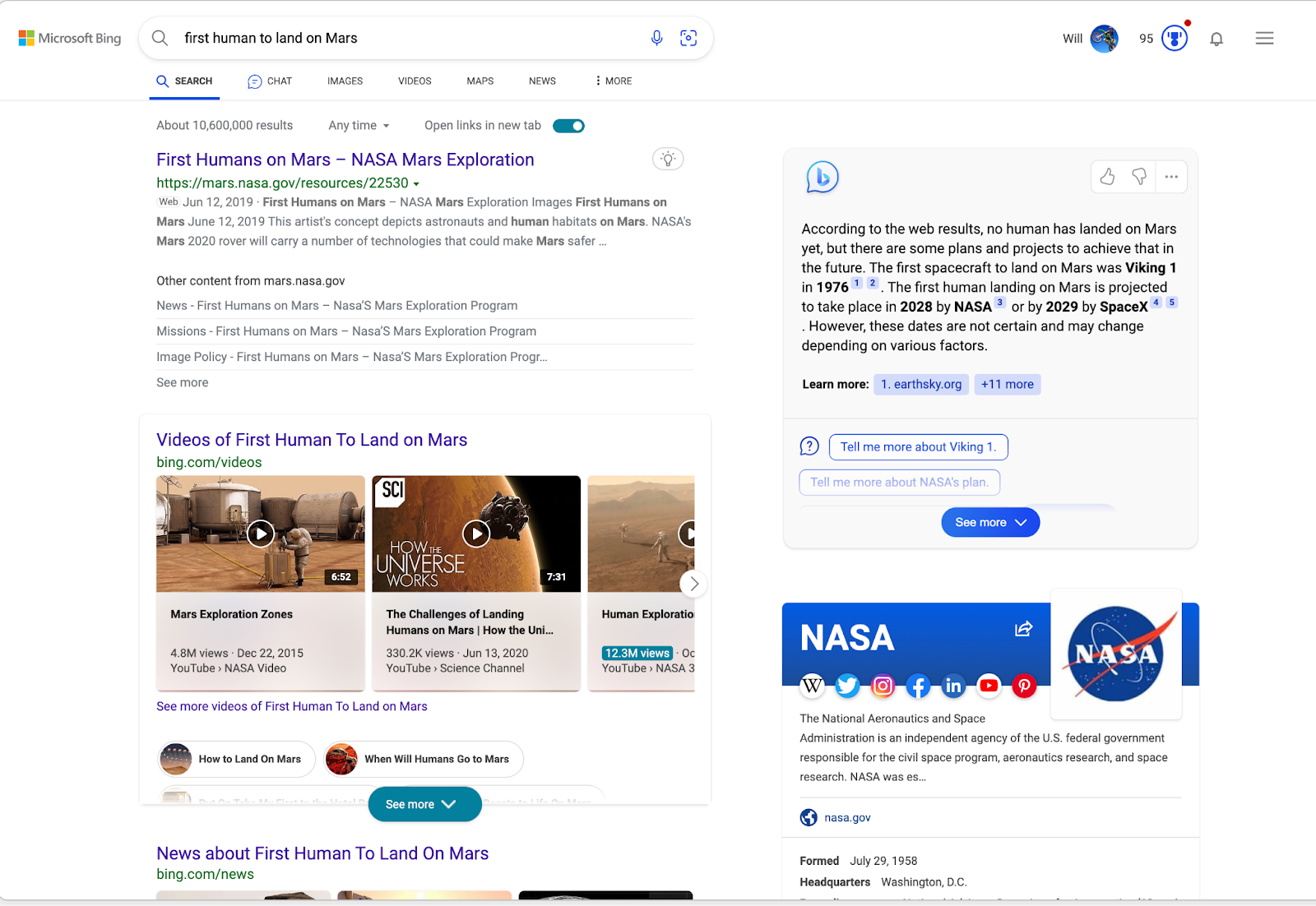
You can also switch to an interactive chat view:
The experience will doubtless continue to evolve, and the true impact remains to be seen. Will this meaningfully affect how users search en masse and change clickthrough behavior? It’s too early to say, but we’ll be watching metrics closely.
There are yet more unanswered questions about the chat-search experience. Users accustomed to near-instant answers may not want to wait as a conversational interface gradually composes a result.
And because of hallucination, responses could be wildly inaccurate or inappropriate. Microsoft has already throttled the conversational mode of Bing after it went awry during long Q&A sessions.
What comes next
Today’s AI content and search tools will continue to change and accelerate. If you’ve been focused on SEO for a while, you’re already used to periodic shifts in algorithms and rich search features.
We’ll be here to help you navigate this latest development every step of the way. We’re working to help creators avoid the negatives of AI while taking advantage of the exciting new opportunities it surfaces as we further develop our products to help.

